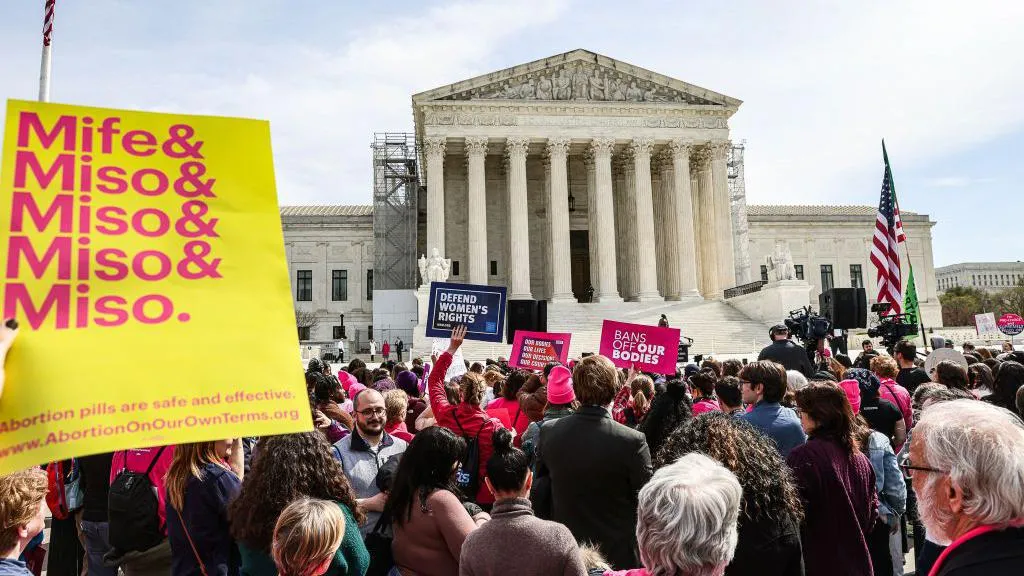In a landmark ruling, the US Supreme Court has unanimously rejected an attempt to limit access to the abortion drug mifepristone, delivering a significant victory for pro-choice activists. This decision arrives two years after the court’s controversial move to rescind the nationwide guarantee to an abortion, a ruling that reverberated across the nation.
The plaintiffs, a coalition of anti-abortion doctors and activists known as the Alliance for Hippocratic Medicine, argued that the US Food and Drug Administration (FDA) should withdraw its approval of mifepristone. However, the Supreme Court found that these plaintiffs did not have the legal standing to sue, a technical but crucial point in their ruling.
The Pill of Contention
Mifepristone, paired with another drug, has become the most common method for terminating pregnancies in the US. The plaintiffs contended that the FDA’s approval process was flawed and that the drug posed dangers. But during the hearings, several justices expressed skepticism, questioning whether any real harm had been demonstrated by the plaintiffs.
Justice Brett Kavanaugh, writing for the court, noted, “The plaintiffs have sincere legal, moral, ideological objections to elective abortion and to FDA’s relaxed regulation, but they failed to demonstrate any actual injury. A plaintiff’s desire to make a drug less available for others does not establish standing to sue.”
Echoes of Roe
This decision follows the court’s June 2022 ruling that overturned Roe v. Wade, effectively ending a federal right to abortion. Since then, 21 states have enacted laws to restrict abortion, some as early as six weeks into pregnancy. While Thursday’s decision does not affect these laws, it maintains access to mifepristone, even in states with strict abortion bans. Thousands of these pills have continued to flow into restrictive states via mail, acting as a critical lifeline for those seeking to terminate pregnancies.
Voices of Reproductive Rights
Pro-choice advocates heralded the ruling as a crucial, albeit limited, victory. “This ruling is not a ‘win’ for abortion, it just maintains the status quo,” said Nancy Northup, president of the Center for Reproductive Rights. She warned that the battle over abortion pills is far from over, noting that the anti-abortion movement recognizes their importance in the post-Roe landscape.
President Joe Biden echoed these sentiments, asserting that the fight for reproductive freedom continues. “The stakes could not be higher for women across America,” he stated, emphasizing the ongoing struggle for reproductive rights.
A Divided Nation
Anti-abortion groups decried the decision, vowing to continue their fight. “It is a sad day for all who value women’s health and unborn children’s lives,” said Katie Daniel, state policy director for Susan B Anthony Pro-Life America. “But the fight to stop dangerous mail-order abortion drugs is not over.”
The Supreme Court’s decision has set the stage for abortion to be a key issue in upcoming elections. Since the overturning of Roe v. Wade, Republicans have faced a dilemma, balancing the demands of a base staunchly opposed to abortion with a general electorate that broadly supports access to the procedure.
A Battle Continues
As the sun sets on this chapter of the legal battle over mifepristone, the fight for reproductive rights in America is far from over. The Supreme Court’s decision is a beacon of hope for pro-choice advocates, yet it also serves as a reminder of the fragile nature of these rights. The struggle continues, with both sides poised for the next round in a long and deeply divisive battle. In this ongoing saga, every ruling, every law, and every vote will shape the future of reproductive freedom in the United States.

